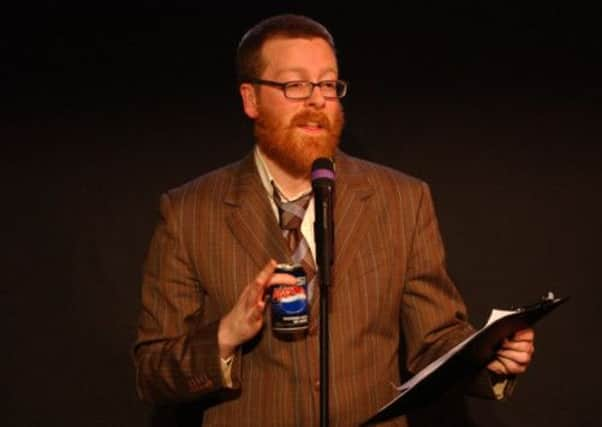Frankie Boyle continues Guantanamo hunger strike


Boyle hopes to raise publicity for the plight of Shaker Aamer who has been held at the detention camp since 2002.
He is among a number of people who are taking it in turns to go for a week without eating to show support for the father of four, who is a legal, permanent resident of the UK and is married to a British national.
Advertisement
Hide AdAdvertisement
Hide AdBoyle took to Twitter this morning, telling his followers that the strike was “a bit ****ing grim”.
In his blog, US lawyer Clive Stafford Smith, the founder and director of legal action charity Reprieve, wrote that he had spent the past week with no food with Boyle taking over from him.
He said that his high profile - and millions of Twitter followers - would be able to highlight what was happening at Guantanamo.
“Frankie’s action is more important than mine,” he wrote.
“If Twitter followers are the measure of the man, then with almost one and a half million, Frankie is almost exactly a thousand times (more important).
“One purpose of these symbolic actions is to provoke debate, to press President Obama to fulfill his post-election promise [to close Guantanamo Bay], and I suspect Frankie is better at doing that than I am.”
He said that actress Julie Christie has also just volunteered to take part, adding: “We live in a celebrity world, and there is nothing wrong with that so long as celebrities use their notoriety for a good purpose.”
Shaker, who grew up in Saudi Arabia, has long been cleared for release by the US and has never been charged with a crime in the country, according to Reprieve.
He has himself been on hunger strike since March, along with an estimated three-quarters of the 166 men still held at the Cuban base.
SEE ALSO: